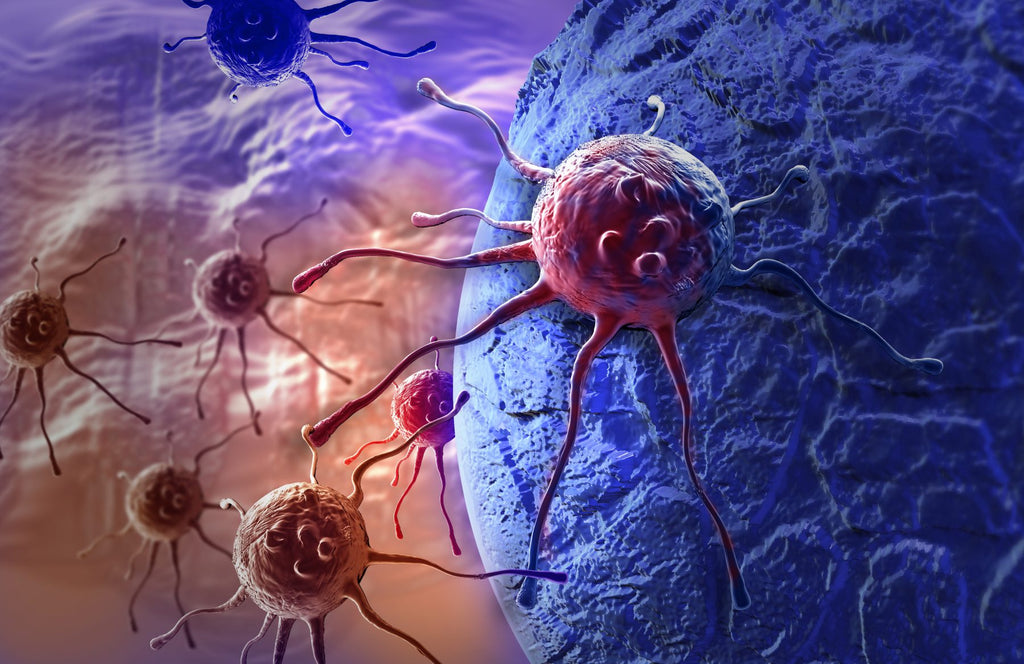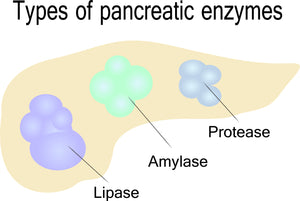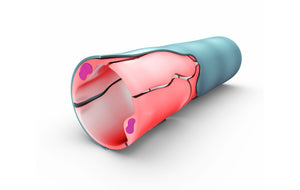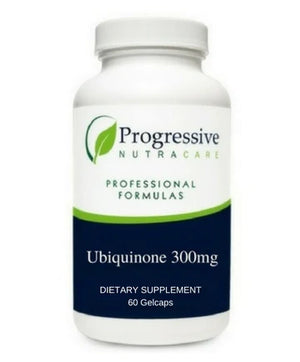Colorectal cancer is shifting to young adults- How to take action to minimize your risk!

Colorectal cancer is increasing among young adults
Colorectal cancers are becoming increasingly common in young adults, even as their incidence falls in older people (The Scientist, August 26, 2019). Studies in the United States, Canada, and Europe have all found a demographic shift in these cancers, with higher increases in rates for younger adults, and all within just a decade or so. A study of 20 European countries out of the Netherlands in 2019 found that “over the past decade, the incidence of colorectal cancer had increased by nearly 8 percent per year among people in their 20s, by 5 percent for people in their 30s, and by 1.6 percent for those in their 40s.” (The Scientist, cited above). Younger people in particular are less likely to be equipped for these cancers since it is still perceived by them and many of their doctors to primarily affect older people. There is less knowledge among younger people about the signs and symptoms of colorectal cancers, younger people are less likely to be fully insured, and less likely to have established medical relationships with their practitioners. Colonoscopies are not routine until 45, or even 50, and the way insurance reimburses for them among many plans may deter many young people from getting one in a timely manner even if they do notice symptoms.
Colorectal cancers are discovered at a later stage among younger people
Not only are younger people not as likely to have the same support network in place and the knowledge to clearly identify the problem, this very lack of knowledge, insurance, or medical support results in colorectal cancers being caught later amongst the young than older individuals. In fact, it can be common for younger adults to not see a practitioner about the problem until the cancer has advanced to type three or four. In fact, a 2008 study published in Medicine (Dozois, et al) found that not only were those under 50 more likely to have more serious stages of colorectal cancer but that they were more likely to have rectal cancer than colon cancer when considering age, especially among men. Rectum cancer tends to be more difficult to treat than colon cancer. Although colorectal cancers are still relatively rare, their incidence is rising and they can be deadly, particularly when they are not diagnosed before stages 3 or 4. The National Cancer Institute says that colorectal cancer is the leading cause of cancer death for men under 50, and the third leading cause of cancer death (behind breast and lung) for women under 50. With rates rising for younger adults and most cancers being detected late for this demographic, these death rates will continue to rise.
Our modern lifestyles may be behind this shift in colorectal cancer to the young
Because these shifts have occurred in such a short time frame, it’s thought that these changes are not because of genetic changes in the population, but due to environmental conditions changing over the last three or four decades. So to examine a potential preventative solution to help with the problem, what are the sort of environmental changes that have been occurring over the last four decades that might explain the shift in colorectal cancer from an “old person's disease” to one that should concern a younger demographic? There is no absolute agreement, but there is a consensus emerging about which environmental factors play a role. We’ll examine some solutions as we go. It’s also important to understand that most of these studies excluded individuals that had a special risk for developing colorectal cancers, like genetic predisposition (10-20% of early-onset colorectal cancers), or already diagnosed inflammatory bowel disease. If you have an inherited condition like Lynch syndrome or have been diagnosed with IBD, you are at a higher risk for early-onset colorectal cancer and should be screened early. Certain other factors are known to put you at a higher risk for cancers, such as obesity, physical inactivity, and smoking. In fact, one of the reasons other than more frequent screenings of older adults for the decline in rates among that population of colorectal cancers is the decrease in smoking in that demographic. If one of these known factors applies to you, then losing weight, exercising more, and stopping smoking can all lower your risk factors.
Share this article to increase awareness!
The other basic thing that can be done is to increase awareness. Articles like this should be shared with young adults so that there is more familiarity with the risks and symptoms. Many younger adults pass off symptoms of colorectal cancers such as rectal bleeding; gut or bowel cramping, gas, or pain; change in stool, or weakness or fatigue as something more minor or at least something else entirely. Many doctors may not consider colorectal cancer in their differential diagnosis for younger adults because of the lingering perception of the condition being only an affliction of the more aged.
Your microbiome can be key to prevention
In the last four decades, there has been a marked increase in the consumption of prepared foods with their baggage of extra salts, sugars, and preservatives. There has been a decrease in how much fiber is consumed. There has been an explosion in the use of antibiotics, both for treatments, for feedlots, and by secondary exposure through runoff to waterways. There has been a rise in food allergies and sensitivities. All of these trends have tended toward altering the microbiome in the gut , and unhealthy diets alone and lack of physical activity have independently been linked to early onset colorectal cancers. The National Cancer Institute has pointed out that “certain types of bacteria in the gut have been pegged as accomplices in the growth and spread of colorectal cancer, and some may even affect how certain cancer treatments work”. Both unhealthy diets and a damaged or altered microbiome can cause inflammation in the gut. The NCI goes on to say that “As for gut bacteria, some bacterial toxins intensify inflammation, '' Dr. Sears noted. Studies have also shown that certain gut bacteria can recruit immune cells that help cancer grow, as well as block immune cells that fight cancer. Inflammation can also generate harmful chemicals that can mutate DNA and promote cancer, explained Dr. Ng.” (Cynthia Sears, M.D., an infectious disease expert from Johns Hopkins University, and Kimmie Ng, M.D., of Dana-Farber Cancer Institute). Fighting gut dysbiosis and inflammation may be crucial in helping to curb the rising rate of early-onset colorectal cancers. This is borne out by the fact that “Half of younger adults with colorectal cancer also have a chronic condition that can cause inflammation in the gut.” according to the NCI.
How can you manage your microbiome?
Aside from changing your diet, losing weight, and changing unhealthy habits, how else can you manage your gut? As this article explains, there are a host of things you can do. Eat more fiber or supplement your diet with fiber with products like EZ Fiber or Inflamma Ease. Take a good probiotic like Probiotic 100, especially if you also need to take antibiotics for any other condition. Add a well-crafted gut support powder to your favorite smoothie, like Foundation Gut Enhancement. If you have been diagnosed with an inflammatory gut disorder like IBS, IBD, or Crohn’s disease, you may need to be under medical care to help manage your condition, take a food allergy test, and embrace an elimination diet to help pinpoint your sources of irritation. Gut health is not only fundamental to help avoid colorectal cancers, but also for general immune support, and overall well-being.
Manage your toxicity
Another environmental change that wreaked havoc on our bodies and contributed to conditions like early-onset colorectal cancers, is the increasing toxicity of our environment. The National Toxicology Program, led by NIEHS, has identified 18 chemicals that cause cancer in the intestines of mice or rats, said NIEHS Director Rick Woychik, Ph.D., who also heads the National Toxicology Program. Some of these chemicals might damage DNA, potentially leading to harmful mutations in cells of the colon and rectum. Heavy metal exposure, the increase in pesticide usage, and the proliferation of chemicals in our foods mean that not only must we safeguard ourselves as best we can by limiting exposure and eating more naturally if we can, but also by possibly testing ourselves for exposure, and detoxing ourselves occasionally. There are a number of detox diets that can be deployed to that end, but adding ingredients into our supplement regimens like broccoli seed extract, pyrophyllite clays and charcoal extracts can also help.
Support Your Circadian Rhythms
An emerging environmental explanation that may help explain the rise in early-onset colorectal cancers is an increasing disruption in circadian rhythms, especially in those younger than 50. Why? Increased screen time, irregular hours, sleeping with the light on, working the night shift, and turning to your phone if you can’t sleep can all contribute to poor or fitful sleep, thereby disturbing your circadian rhythms. An earlier study that showed that nurses that worked the late shift had a higher risk of breast cancer than those that didn’t, gave the idea to researchers to study the same effect in early-onset colorectal cancers since they posited that studies showing the screen and sleep habits of younger adults might intersect with the rise in rates of early-onset colorectal cancers. Sure enough, their study did demonstrate a connection. In the study, reported in Science on August 10, 2022, the researchers from Cal State Irvine found not only that “Genetic and environmental disruptions to circadian clocks accelerate the progression of colorectal cancer in organoids and mice”, but “This link between the body’s natural circadian clock and colorectal cancer, the researchers behind the study say, may explain the alarming rise in young-onset colorectal cancer observed over the last two decades.” (The Scientist, Aug 19, 2022). More study is needed on how exactly light sources fit into this link, but for now, there seems at least to be a causal link between the disruption of circadian rhythms and the development of colorectal cancers.
Limit your screen time
So, you may have heard the term “circadian rhythms”, but what exactly are they? Circadian rhythms are simply 24-hour cycles tied to the sleep/wake cycle that determines when our bodies expect to be asleep and awake. They are tied to light, and are the reason behind seasonal affective disorders in both latitudes with too much light or too much darkness, and have been well documented as being disrupted by reversing when the body sleeps and wakes. Subsequent research has demonstrated their importance to human health and more recently to cancer specifically. Many things can disrupt circadian rhythms, but if you can practice good sleep practices and limit screen time, that seems to help according to numerous studies. Many can’t. You may depend on your phone or computer screen for your job or your social life. You may find social time with your family in front of the tv. If this is the case, or you simply can’t sleep or must work late or odd hours, what can help? One natural product that has been well studied for sleep and circadian rhythm adjustment is melatonin.
Try melatonin to help regulate sleep cycle
Melatonin is a natural hormone produced by your brain in response to darkness. It helps regulate your circadian rhythms and sleep and being exposed to sleep can block melatonin production (as per the NIH). If your melatonin production is disrupted, it may mean that you won’t be able to sleep in, or the next night. Continued disruptions may make you sleep deprived, upset your circadian rhythms, and lead to other health concerns- like increasing the risk for early-onset colorectal cancer. Luckily, melatonin is available as a supplement to help restore your sleep and keep your circadian rhythms more on track. The Mayo Clinic suggests that melatonin supplements are safe, can be used to induce sleep, and regulate circadian rhythms. In addition, there is some evidence that melatonin increases apoptosis (cell death) in some cancers, so it may independently help combat colon cancer cells specifically ( Journal of Pineal Research, 2017, Gao, et al). In addition, melatonin is crucial in the regulation of the glymphatic system, which is essential in removing proteins and metabolic waste products which are correlated with the development of neurodegenerative disease (Bitar, R.D., Torres-Garza, J.L., Reiter, R.J. and Phillips, W.T. 2021. Neural glymphatic system: Clinical implications and potential importance of melatonin. Melatonin Research. 4, 4 (Dec. 2021), 551-565.)
Tired but wired? Try Ashwagandha
Melatonin can be a great help to sleep and to help reset circadian rhythms, but there are other natural products that can also help with adjusting sleep and possibly circadian rhythms. If your problem with sleep is that you are “tired but wired”, try Ashwagandha, which can help calm your racing thoughts while you try to sleep. If your profile is more “tired but depressed” that may stop you from sleeping, consider support for your adrenal system like ginseng, eleuthero, or Schisandra, which can increase your energy, mental clarity, and mood.
I know that even thinking about colorectal cancer can be a daunting prospect, but NOT thinking about it is even worse. If you embrace your own control over health and strive to live an overall healthier life, make adjustments to help avoid the terrible toll of colorectal cancers. You can make a difference in your health!
*By including product links in this article, Progressive Nutracare is providing a reference to our readers to assist in searching and cataloging the site. These products have not been evaluated by the F.D.A. are not intended to treat, diagnose, cure, or prevent disease.
- Robert Thomas







Comments 0